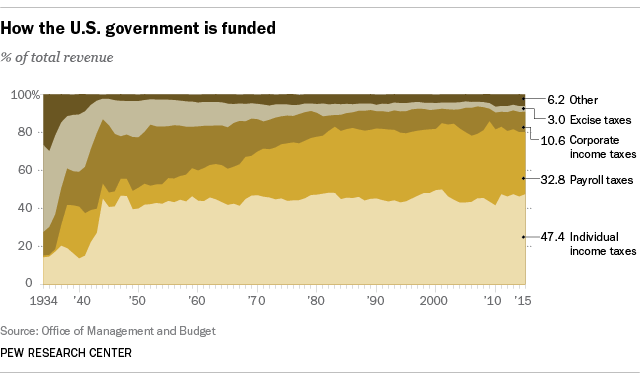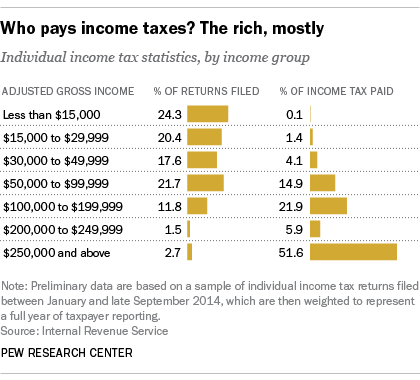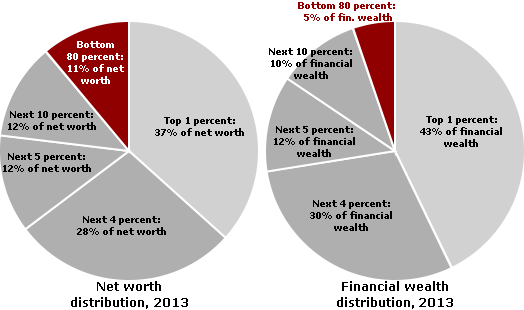- Joined
- Dec 13, 2015
- Messages
- 9,594
- Reaction score
- 2,072
- Location
- France
- Gender
- Male
- Political Leaning
- Centrist
From the Economist: A new anthology of essays reconsiders Thomas Piketty’s “Capital” - excerpt:
No doubt, we can complain about many facets of Piketty's work. But its piercing evidence of the existence of massive Income Inequality in most modern economies is well worth noting.
And yet, we have those who refuse to acknowledge that fact. Living in France, where Piketty was well known, the French are not surprised that the rich are ... well, so rich. Even if taxation is so high, that the really French rich off-it to the US - where they pay no taxes on their Income to the French government. Unlike we Yanks who must pay taxes regardless of where we live in the world.
The attitude towards riches is key to understanding Income Inequality. In America, Wealth is a red-badge of courage for those who "made it". Work hard, do well, earn lotsa muney - and keep most of it. The US has the least burdensome taxation system on earth. Just see here for comparisons.
Which is THE problem. At the very same time that the rich are rolling in dough, 14% of the population below the Poverty Threshold (that's close to 40 million American men, women and children) are wondering from where their next meal is coming.
And those in the middle between the two extremes? We, the sheeple, pay the taxes that keep the wheels of government running. (Off to war, for the most part.)
“A MODERN Marx” was how The Economist described Thomas Piketty three years ago, when he was well on his way to selling more than 2m copies of “Capital in the Twenty-First Century”. It was meant as a compliment, mostly: as advice to take the analysis seriously, yet to treat the policy recommendations with caution. The book’s striking warning, of the creeping dominance of the very wealthy, looks as relevant as ever: as Donald Trump’s heirs mind his business empire, he works to repeal inheritance tax. But “Capital” changed the agenda of academic economics far less than it seemed it might. A new volume of essays reflecting on Mr Piketty’s book, published this month, prods economists to do better. It is not clear they can.
“After Piketty: The Agenda for Economics and Inequality” ... is a book by economists, for economists. In that it resembles “Capital” itself. Before he was an unlikely cultural icon, Mr Piketty was a respected empirical economist. He was best known as one of a group of scholars, among them Emmanuel Saez and Anthony Atkinson, who used tax data to track long-run inequality. In “Capital” these data became the basis for an ambitious theory of capitalism. Mr Piketty argued that wealth naturally accumulates and concentrates, so that familial riches are ever more critical to determining an individual’s success or failure in life. The extravagant inequality of the Gilded Age could return if no preventive action is taken.
Mr Piketty chose to compress his sweeping narrative into a compact economic model backed up by a few simple equations. The mathematical expression at the heart of his book is little more complicated than an emoji: r > g. It says that the rate of return on capital, r, has historically been greater than g, the growth rate of the economy. Why does this matter? It means, first, that the ratio of an economy’s wealth to its output tends to rise, which increases the relative economic power of wealth in society. Second, because the distribution of wealth is usually less equal than the distribution of income, faster growth in wealth than in GDP means a steady increase in inequality. Third, it implies that income from capital will grow as a share of income (and income from labour will fall). So being born rich (or marrying well) becomes a surer route to success than working hard or starting a firm. It is a recipe for social stagnation, and perhaps crisis.
No doubt, we can complain about many facets of Piketty's work. But its piercing evidence of the existence of massive Income Inequality in most modern economies is well worth noting.
And yet, we have those who refuse to acknowledge that fact. Living in France, where Piketty was well known, the French are not surprised that the rich are ... well, so rich. Even if taxation is so high, that the really French rich off-it to the US - where they pay no taxes on their Income to the French government. Unlike we Yanks who must pay taxes regardless of where we live in the world.
The attitude towards riches is key to understanding Income Inequality. In America, Wealth is a red-badge of courage for those who "made it". Work hard, do well, earn lotsa muney - and keep most of it. The US has the least burdensome taxation system on earth. Just see here for comparisons.
Which is THE problem. At the very same time that the rich are rolling in dough, 14% of the population below the Poverty Threshold (that's close to 40 million American men, women and children) are wondering from where their next meal is coming.
And those in the middle between the two extremes? We, the sheeple, pay the taxes that keep the wheels of government running. (Off to war, for the most part.)
Last edited:



